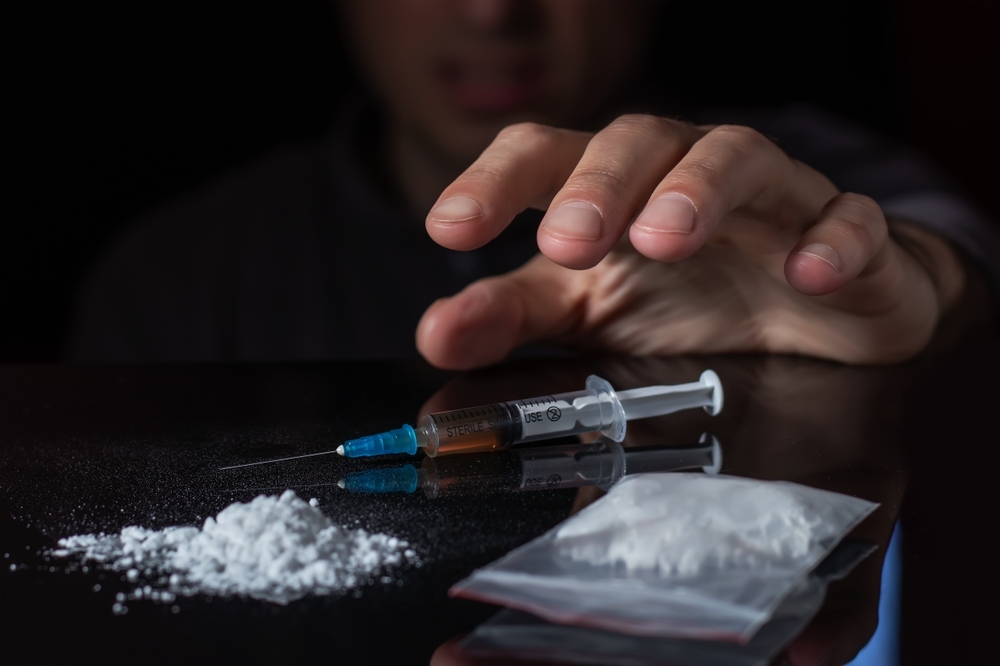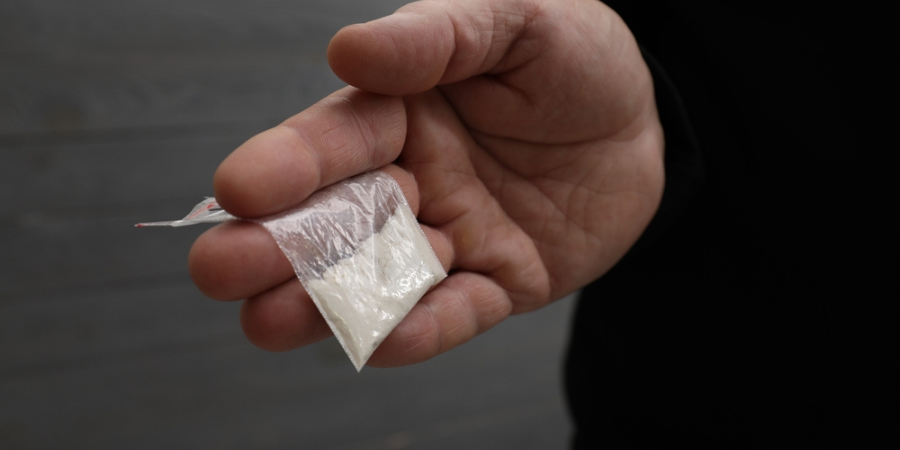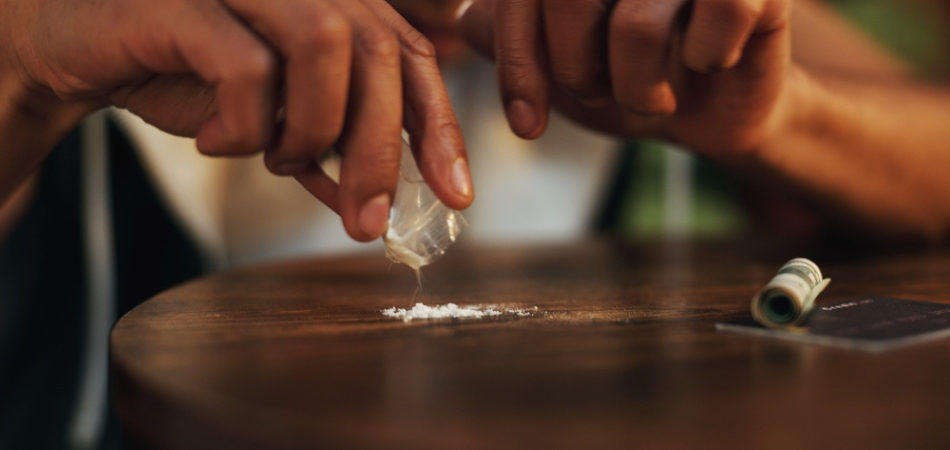Cocaine Addiction | Signs, Symptoms and Effects
Cocaine addiction is an ever-growing issue, particularly in the United Kingdom where the prevalence of the drug has been steadily rising for decades. Despite recognition of the detrimental effects of cocaine use, increasing cultural acceptance of the substance has made it alarmingly accessible and easy to obtain throughout the country. In fact, it is estimated that England and Wales have the second highest percentage of cocaine use in the whole world, with 3.11% of the population using this drug.
If you are part of this percentage and have noticed worsening issues around your cocaine use, it’s time to get help. Recovery Lighthouse can support your recovery and turn your life around.
Why is cocaine addictive?
Cocaine is a powerfully addictive drug which holds the potential to ruin lives. It affects the brain by manipulating neurotransmitters like dopamine and serotonin, resulting in an intense rush of pleasure that can quickly become habit-forming. Once consumed, cocaine causes parts of the brain related to decision-making and self-control to become less active, making it harder to resist taking more doses.
This happens every time you take cocaine, eventually leading to a heightened dependence. Neurotransmitter activity in areas of the brain associated with reward will become heavily altered from repeated cocaine use, which leads to compulsive seeking of the drug as you become reliant on its effects.
The fast-acting but relatively short high cocaine produces is addictive in itself – users often chase the initial rush and repeatedly consume the drug in quick succession. This recurrent dosing increases the likelihood of an addiction developing.
Am I addicted to cocaine?
Admitting to having a problem with cocaine can be incredibly tough. It is important to consider how much time you spend thinking about and using the drug, the amount of money you’re spending on cocaine and whether periods of abstinence lead to physical and psychological distress.
Additionally, look for patterns in bingeing sessions, changes in behaviour and mood, as well as a shift in your priorities due to an increased focus on acquiring or using cocaine. Ask yourself if you are frequently lying about your cocaine use or if family members and friends have expressed concern about the apparent extent of your addiction.
Do you find yourself using cocaine more and more often, or in larger amounts than when you began? Are you feeling like you need to keep taking cocaine just to get through the day? If any of this resonates with you, it is possible that you have an addiction to cocaine.
The dangers of cocaine
Cocaine is a highly dangerous substance and can have devastating effects, whether you use it one time or on an ongoing basis. Cocaine use often leads to physical and mental health issues, and can even be fatal in some cases. Cocaine-related deaths have risen by 8.1%, with 840 deaths occurring in 2021.
Some of the physical side effects of cocaine include:
- Increased body temperature
- Cardiovascular issues, including increased heart rate, irregular heart rhythms and high blood pressure
- Damage to the nose and mouth
- Constricted blood vessels
- Damage to kidney and liver
- Increased risk of stomach ulcers
- Increased risk of aneurysm, stroke, seizure and other life-threatening conditions
Some of the psychological side effects of cocaine include:
- Mood swings
- Aggression and agitation
- Paranoia
- Anxiety
- Depression
- Suicidal ideations
Additionally, long-term cocaine use can contribute to difficulty with concentration and decision-making skills due to the effect it has on the brain. It is clear that cocaine should be avoided at all costs as its detrimental side effects far outweigh any perceived rewards from its usage.
The truth about cocaine addiction
Cocaine addiction is an increasingly prevalent health concern in countries around the world. While it’s important to understand the devastating effects of this drug addiction, there are also many misconceptions about cocaine addiction that can lead to misunderstanding and lack of treatment.
Myth: Cocaine is only psychologically addictive – you can quit if you really want to.
Fact: Many people think that it’s “mind over matter” when it comes to giving up cocaine and that this drug does not cause physical addiction. That is simply not true – cocaine is both psychologically and physically addictive and requires intensive treatment. You may suffer from physical withdrawal symptoms if you stop taking the drug, making it very difficult to quit. The psychological hold is also not easy to overcome on your own and is not something that can be merely swept under the rug.
Myth: I have only been using cocaine for a short time – I can’t be addicted.
Fact: Cocaine is an extremely addictive substance and the short-lived high means that it is prone to increased, regular use. With this, tolerance develops rapidly and you will find yourself needing higher doses of the drug just to feel the same effects. It is a slippery slope from tolerance to dependence, with some becoming addicted to cocaine after just a few uses.
Myth: Cocaine improves my performance at work and makes me more social.
Fact: Cocaine is often portrayed as the drug of choice for corporate businessmen, for example, in movies like “The Wolf of Wall Street’. This performance-enhancing stereotype is dangerous as while cocaine may make you more energetic and alert for a brief time, it can also cause aggressive behaviour and cognitive decline in the long run. You’ll be more prone to anxiety and impulsivity, and struggle to gauge social cues.
Understanding the common myths surrounding cocaine addiction and educating yourself on the facts is essential in fighting this condition and making sure those suffering get the help they need.
Am I enabling a loved one’s cocaine addiction?
This is an age-old issue for so many families trying to cope with a loved one’s addiction – of course you want to help your family member in any way you can, but are you enabling them? If so, you may unknowingly be perpetuating their cocaine habit and prolonging their recovery.
But what constitutes enabling? Here are some signs to look out for:
- Do you provide money to your loved one if they ask for it?
- Do you provide housing for them?
- Do you cover up for your family member or lie on their behalf?
- Do you make excuses for their behaviour or blame their cocaine addiction on something else? For example, “it’s just because they are stressed at work”.
- Do you ignore their cocaine use or pretend like nothing is wrong?
- Do you cater to your loved one’s needs before looking after yourself?
If any of these statements apply to you, you could be enabling a cocaine addiction. While this may come from a place of just wanting to help, it could have devastating impacts on both you and your family member down the line.
Instead, you should focus on:
- Talking openly and honestly about your feelings
- Trying to persuade your loved one to get professional help
- Set rules and boundaries, and most importantly, stick to them
- Remember to take care of yourself first
It is never easy to talk to a family member about cocaine addiction, but ensuring you listen and encourage healthy dialogue between the both of you is essential. This way, you can still support your loved one without fueling their cocaine habit.
Can I overcome my cocaine addiction?
Overcoming a cocaine addiction can be both difficult and daunting, but there is hope. The key is to find a treatment programme that suits your needs. Detox, rehab, and aftercare are all essential components for recovery – all of which Recovery Lighthouse offers as part of our extensive treatment plan.
Detox involves eliminating toxins from the body through nutrition, gentle exercise and assisted guidance from our medical staff. As your body naturally works to expel any harmful substances, our team will be there to make you comfortable and help you manage any withdrawal symptoms.
Cocaine rehab, the next phase of recovery, focuses on implementing various therapy techniques so that you can understand the psychological reasons for your cocaine use. This will include group therapy, individual therapy, family therapy and relapse prevention techniques.
Once you leave our rehab facility, you will be able to take part in our free aftercare programme. This includes weekly support groups and therapy that helps you maintain a sober lifestyle after leaving rehabilitation.
What’s next?
Without the perilous side effects of cocaine addiction, you will be free to explore a healthier and happier life. You can rise up from addiction and create positive social connections, strive for success in work or school, invest in yourself and your future, build meaningful relationships with others, learn about yourself and find out what truly makes you happy – all without the destruction that comes with cocaine abuse. Remember that it is never too late to start on the road towards sobriety. Your future depends on the decisions you make today.









